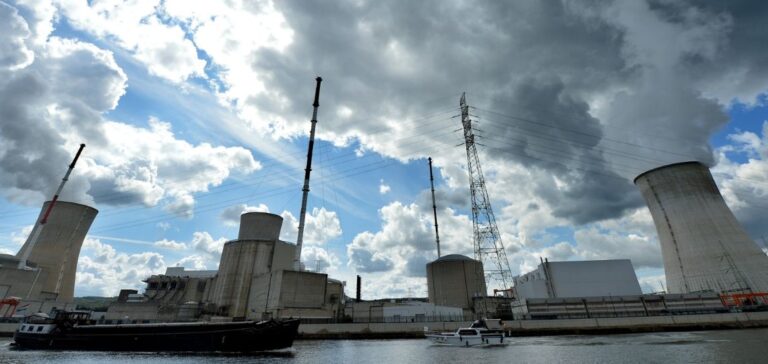France has accumulated in 30 years “a considerable delay” in its capacity to cover its energy needs, in particular in electricity, concludes a commission of inquiry of the National Assembly, calling for a start and a new programming over 30 years.
In a report presented on Thursday, the result of 88 hearings that resembled group psychotherapy in the heart of a winter marked by the insufficient production of the park nuclearThe commission “aiming to establish the reasons for the loss of sovereignty and energy independence of France” puts on trial what it describes as a “slow drift” and “political ranting, often unconscious and inconsistent” since the mid-1990s.
“We are therefore now facing an unprecedented energy wall,” say the majority rapporteur Antoine Armand and his LR colleague, the chairman of the committee Raphaël Schellenberger, after 150 hours of work and questions to those responsible for the French energy choices of the last three decades.
Experts, scientists, heads of companies and regulatory bodies, senior civil servants, former ministers, and even two presidents of the Republic, Nicolas Sarkozy and François Hollande, have been grilled since November 2. The report, which identifies six major past mistakes, makes 30 recommendations, most of them largely in support of the nuclear revival announced by the executive, but also in favor of hydroelectricity and the development of heating networks.
“Over the past 30 years, our energy mix has ultimately changed little and its fragilities have increased,” the report says. It points to “multiple dependencies on imported fossil fuels (gas and oil, editor’s note) which are becoming scarce and will run out in a few decades”. He also criticizes the “very low development of means of demand control” consisting in consuming less. The “electricity consumption forecasts requested from RTE”, the company that manages the high-voltage network, cover “only the short or medium term, with no link to the climate objectives, which are nevertheless well known, nor to the long term required by the energy sector industry”, the authors also write. They see this as one of the factors that led to “underestimating our electricity needs” and to a lack of “long-term thinking about our industrial and climate ambitions”.
They therefore advocate, among their 30 proposals, a “30-year energy and climate programming law with climate, energy and industrial objectives as well as the related resources, which will be closely and regularly monitored by Parliament and expert institutions”. They are also asking for “increased transparency” and better anticipation on the part of EDF, while the nuclear fleet is weakened by corrosion phenomena in the piping of certain reactors and must pass the 50-year mark.





















